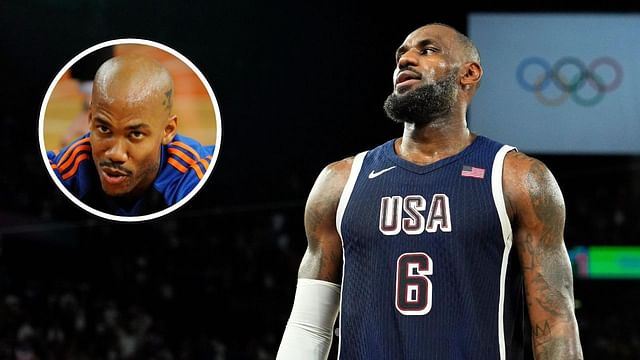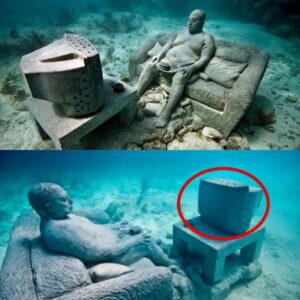LeBron James Always Thinks of Himself as a Victim, Says ‘It Was Unfair to Throw Me Out of the Team’
In an astonishing twist that could only happen in the high-drama world of professional basketball, James LeBron, the perennial all-star and self-proclaimed ‘Chosen One’, has recently declared himself a victim of gross injustice. His grievance? Being thrown out of the team, an act he deems as profoundly unfair. Buckle up, sports fans, because this is not just a story about basketball. It’s a Shakespearean tragedy (or is it a comedy?) playing out on the hardwood.Let’s set the stage: LeBron, known for his gravity-defying dunks and ability to command the court, has recently faced a new opponent, one that even his expert ball-handling skills can’t shake off – his own sense of victimhood. In a press conference that felt more like a one-man show, LeBron lamented his fate in a soliloquy worthy of Hamlet. “To play or not to play, that is the question,” he might as well have said, as he described the heart-wrenching tale of his departure from the team.
According to LeBron, his ejection from the team was not just a decision; it was an act of treachery, a stab in the back akin to Julius Caesar’s last moments. “Et tu, Coach?” you could almost hear him whisper, as he recounted the moment he was told of his dismissal. He painted a picture of a world where he, despite being the hero of the court, was perpetually subjected to the whims and fancies of those who could not comprehend his greatness.

But let’s dribble a bit deeper into this. LeBron’s story, while compelling, has a few air balls. For starters, his on-court performances, while still impressive, have lately been more reminiscent of a veteran stage actor forgetting his lines than the sports prodigy we once knew. Missed shots, botched passes, and a defense that might as well have been a ghost haunting the court – these were the signs that perhaps LeBron’s reign was experiencing its twilight.
Moreover, LeBron’s relationship with his teammates had reportedly become strained, resembling a royal court filled with whispers and plots. Rumors of locker room dramas, not unlike a scene from “Mean Girls”, were rampant. Was LeBron the benevolent king betrayed by his courtiers, or was he the tyrant oblivious to his own downfall? The answer might lie somewhere in between.
In the world of sports, where ego and talent dance a delicate tango, LeBron’s fall from grace was not just about his physical prowess on the court. It was a Shakespearean drama, complete with hubris, a tragic flaw, and a fall from great heights. In this drama, LeBron’s tragic flaw was not his declining athletic ability, but his inability to see beyond his own narrative of victimhood.
In his press conference, LeBron spoke of unfair treatment, of a world that could not understand his genius. But in doing so, he perhaps missed the point. Sports, like life, is a team effort. It’s not just about the star player; it’s about how he plays with others. And in this regard, LeBron seemed to have lost the ball.
As we watch this drama unfold, we can’t help but wonder if LeBron’s tale is a cautionary one. In a world where athletes are often put on pedestals, treated as demigods immune to the flaws of mere mortals, LeBron’s story is a reminder that they too, can fall.
In the end, LeBron’s declaration of victimhood might be more than just a sports story. It’s a reflection of our times, where narratives of personal grievances often overshadow collective responsibilities. It’s a story that asks us to look beyond the glitz and glamour of sports superstardom and see the human underneath.
As the curtain falls on this act of LeBron’s career, we’re left with a question: Is LeBron truly a victim of unfair play, or is he just a player who lost sight of the game? Only time will tell. But for now, we can all enjoy the drama, the comedy, and the human spectacle that is professional sports. After all, isn’t that why we watch the game?





